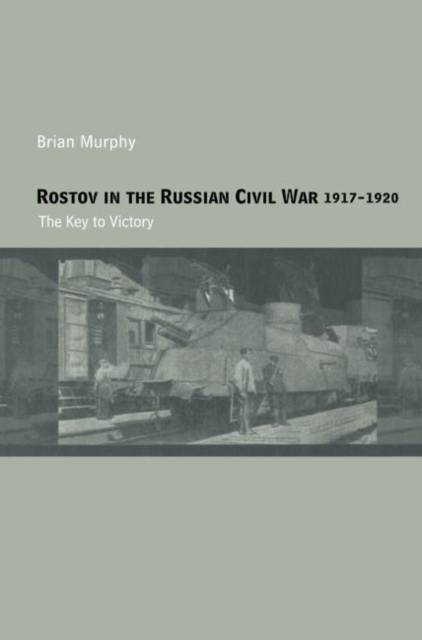
- Afhalen na 1 uur in een winkel met voorraad
- Gratis thuislevering in België vanaf € 30
- Ruim aanbod met 7 miljoen producten
- Afhalen na 1 uur in een winkel met voorraad
- Gratis thuislevering in België vanaf € 30
- Ruim aanbod met 7 miljoen producten
Zoeken
€ 75,95
+ 151 punten
Uitvoering
Omschrijving
These documents were collected from the archives in Rostov-on-Don, and this book makes them available for the first time in print. Since becoming freely accessible Soviet archives have provided a rich source for understanding the hopes, fears and strivings of the Russians during the greatest crisis in their history. Both Reds and Whites realized Rostov's vital strategic importance, and the city changed hands six times between 1917 and 1920. These newly published personal stories fill out the social background to its complex mix of classes and nationalities. They convey the daily experience of life in the streets, and the perils faced by either side when changing fortunes forced them to escape across the River Don. Over the last century the slogans of the Revolution have become stale for us. But if we seek to understand the spirit of those years we must remember that these beliefs gave fresh hope to many individuals, presenting a cause for which they were prepared to endure great suffering, and even to sacrifice their lives. Perhaps the passionate enthusiasm of these revolutionaries may give us some insight into the psychology of young men and women who are called 'terrorists' today?
Specificaties
Betrokkenen
- Auteur(s):
- Uitgeverij:
Inhoud
- Aantal bladzijden:
- 216
- Taal:
- Engels
- Reeks:
Eigenschappen
- Productcode (EAN):
- 9780415651547
- Verschijningsdatum:
- 22/10/2012
- Uitvoering:
- Paperback
- Formaat:
- Trade paperback (VS)
- Afmetingen:
- 156 mm x 234 mm
- Gewicht:
- 303 g

Alleen bij Standaard Boekhandel
+ 151 punten op je klantenkaart van Standaard Boekhandel
Beoordelingen
We publiceren alleen reviews die voldoen aan de voorwaarden voor reviews. Bekijk onze voorwaarden voor reviews.











